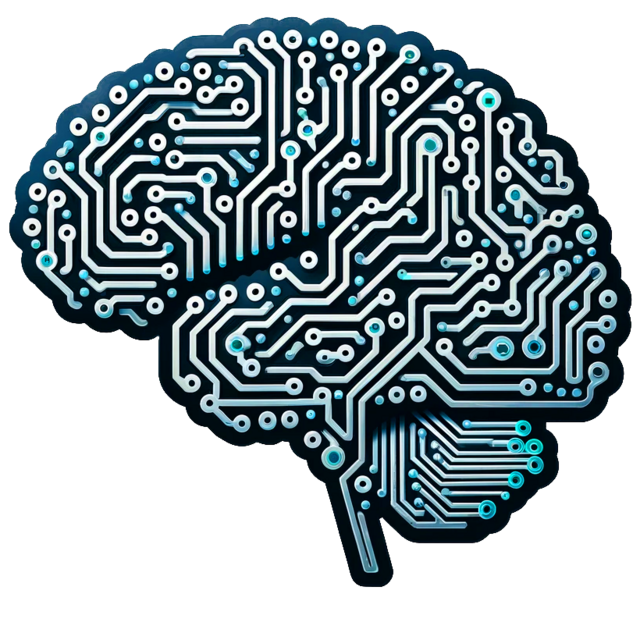Artificial Intelligence (AI) is all the rage now. Who among you hasn’t used ChatGPT or one of its kin? We’ve all actually been using AI for years now in various ways. Every time you put on your responsive cruise control or your lane assist in your car, that’s AI. Every time you fly on a jetliner, the pilots are using an AI-based autopilot. Most likely some of the ads you’ve seen in the past day or two have been at least partially AI generated. So, what are the pros and cons of AI in education?
Well, to begin with, I’ll be honest in saying that I don’t see many, if any, pros. What do developing young human beings need with AI? Isn’t the point of education to develop their capacities of thinking, feeling, and willing? Or, as I like to call them, the three C’s: creativity, compassion, and capability.
That being said, this article attempts to outline the pros and cons of AI in education, and it’s worth speaking to.
Pros of AI in Education
The article linked above outlines some of the benefits of AI in education. In my mind, they distill to one basic idea: helping students develop their human capacities.
One example of this which the article gives is to remind a student of how to solve an equation, though, not to solve it for them. This seems useful if, for example, no human teacher is around. Of course, the danger is the student may come to rely on the AI to remind them of everything, and that’s no good. Student should always use their own efforts first, and only ask for help if they’ve exhausted all possibilities. I would uphold the same standard in the classroom. After all, there is something called a textbook, and students can still go and look up the procedure physically.
Another example the article gives is of AI embodying characters from history or literature, like Shakespeare or the Great Gatsby, to help students understand stories or symbolism better. The idea is to give students an experience of what it would be like to talk to those individuals. Having tried this myself, my reflection is this. AI still gives canned answers. I know when you’re talking to a human vs. a machine. Now, proponents of AI say it will get better and more humanlike in the future. Perhaps, but is that because machines will actually become more humanlike? Or, because humans will become more machinelike? Who’s in charge here, after all? And, now we start to approach the dangers.
Cons of AI in Education
The cons of AI in education all boil down to the same essential danger: losing our humanity, and the temptation is tremendous. I fear it will be too much for many to resist. This question, “Who’s really in charge here, human or machine?” is THE question of our epoch.
AI dehumanizes is by making us lazy and socially disconnected. Did you ever see that film “Wall-E” where all humans existed on a spaceship in a constant state of instant gratification? They didn’t have to lift a finger to get every need met. It was a chilling caricature of what could become of humanity. Not only could we have AI vacuum our living rooms or cook our meals, but we could have AI do our math homework for us, write our papers, or even write and record our music. A dear friend of mine is an exceptional composer who recently sent me a song he “wrote.” I listened to it, and it sounded somehow creepy. I couldn’t put my finger on it until he told me AI compiled the song, given instructions he had input.
The danger, especially for students, is that in letting AI do their work and their thinking and even their chores for them, they will fail to develop human capacities. The dangers of letting a computer think for you need not even be discussed here, or at least I hope not. If you need a lecture about why that’s a bad idea, you’re in deep trouble, mate. However, what even of not having to do chores? If it’s okay for the robot vac to clean your teen’s room, what capacity is being lost in that? Think about it.
The Bottom Line
The bottom line of the pros and cons of AI in education is this: do we know what is truly human? Every new technology brings benefits and dangers. In the past hundred years, we have crossed three major thresholds: nuclear energy/weapons, genetic engineering, and now AI. The question for all three is whether or not humans have the moral compass to use them helpfully and not harmfully, healthfully and not in ways that cause illness.
In order to have that moral compass, however, we have to return to the question, “What is essentially human?” Personally, I am not a luddite. I would be a hypocrite to oppose all technology, using it as I do to spread this wonderfully humanizing path of Waldorf Education. However, the dawn of AI is making us confront this essential question as some seek to merge machine learning with human thinking in the brain chip.
On that last point, I’m not going to preach what I think is right and wrong. Instead, I will just say this. We’d better figure out FAST what it means to be human and where technology is and is not appropriate in our human lives. We’d better know where to let the machine help us and where to keep him chained and restrained. The human inner world of thinking is the last outpost of human freedom. If we give that up, we lose the ship. So, O Human Being, tread carefully.


Leave a Reply
You must be logged in to post a comment.